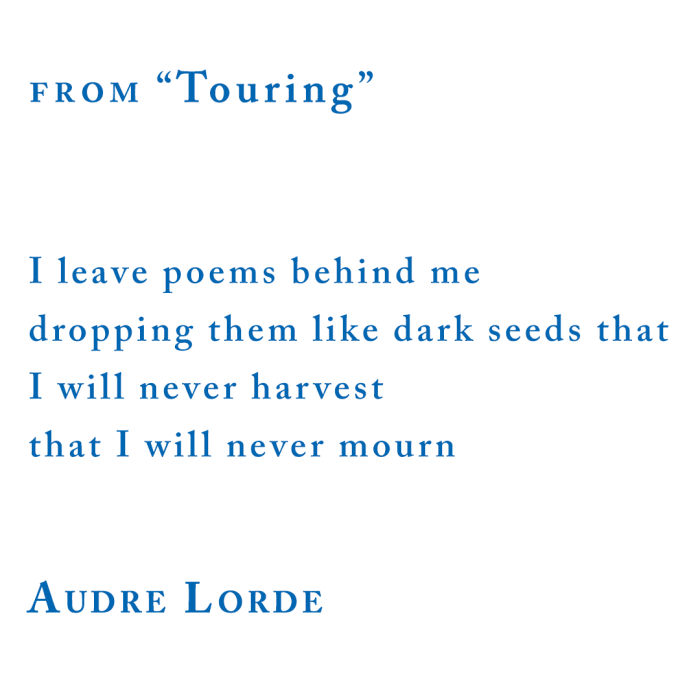Audre lorde fourth of july – Audre Lorde’s Fourth of July is a powerful and provocative essay that examines the complex relationship between Independence Day and the experiences of marginalized communities in America. As an African American lesbian woman, Lorde offers a unique perspective on the holiday, challenging its traditional symbolism and exposing the ways in which it perpetuates systems of oppression.
Lorde’s writing on the Fourth of July is deeply rooted in her own experiences with racism, sexism, and homophobia. She argues that these forms of oppression are not separate from the celebration of American independence but are deeply embedded within its history and culture.
Audre Lorde’s Relationship with Independence Day
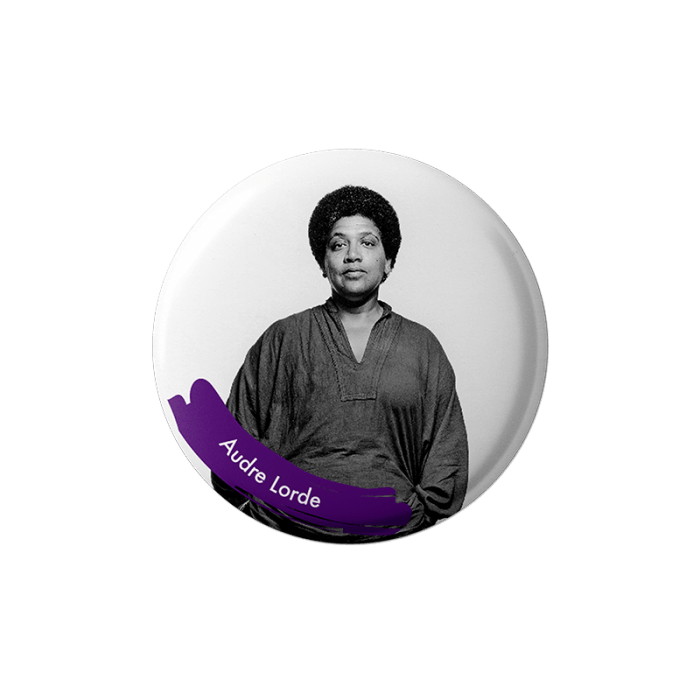
Audre Lorde, an African American woman and lesbian poet, writer, and activist, had a complex and evolving relationship with the Fourth of July. As an African American woman, she experienced firsthand the racism and discrimination that continued to plague the United States despite its claims of freedom and equality.
Audre Lorde’s “Fourth of July” explores themes of freedom and oppression. Words like “fraction” and “fracture” echo these ideas. For more on words with the stem “fract,” visit here . Lorde’s poem uses language to highlight the fragmented nature of American society.
Audre Lorde’s Perspective on the Fourth of July
Lorde saw the Fourth of July as a day of both celebration and mourning. She celebrated the ideals of freedom and equality that the holiday represented, but she also mourned the fact that these ideals had not yet been fully realized for all Americans.
“I celebrate the Fourth of July with mixed feelings,” Lorde wrote in her essay “The Fourth of July.” “I celebrate the day that declared our independence from England, but I also mourn the fact that we are still not free from racism, sexism, and homophobia.”
Lorde’s perspective on the Fourth of July was shaped by her own experiences as an African American woman and lesbian. She knew that the United States had a long history of racism and discrimination, and she saw the Fourth of July as a reminder of that history.
Lorde also knew that the United States had a long history of sexism and homophobia. She saw the Fourth of July as a reminder of the ways in which women and LGBTQ people had been marginalized and oppressed.
The Intersectionality of Oppression in Lorde’s Work: Audre Lorde Fourth Of July

Audre Lorde’s unique perspective as a Black, lesbian, feminist writer deeply influenced her understanding of Independence Day. Her experiences with racism, sexism, and homophobia shaped her critical lens on American society and its claims of freedom and equality.
Racism and Sexism
As a Black woman, Lorde experienced the intersection of racism and sexism firsthand. She understood how these systems of oppression worked together to marginalize and silence women of color. In her essay “The Fourth of July,” she writes: “I have been a Black woman all my life, and I have never been free.”
This statement captures the profound impact of racism on her lived experience and her understanding of American independence.
Homophobia and Sexism
Lorde’s experiences as a lesbian also intersected with her experiences of racism and sexism. She faced discrimination and prejudice from both the Black community and the white LGBTQ+ community. This intersectionality shaped her understanding of the limitations of both movements and the need for a more inclusive and intersectional approach to liberation.
Intersectionality in her Writing
Lorde’s intersectional experiences informed her writing in profound ways. She refused to separate her identities and experiences, recognizing that they were all integral to her understanding of the world. Her poetry and essays explore the complex ways in which racism, sexism, and homophobia intersect and impact the lives of marginalized people.
Through her work, she challenged the dominant narratives of American independence and called for a more just and equitable society.
The Fourth of July as a Symbol of Freedom and Oppression
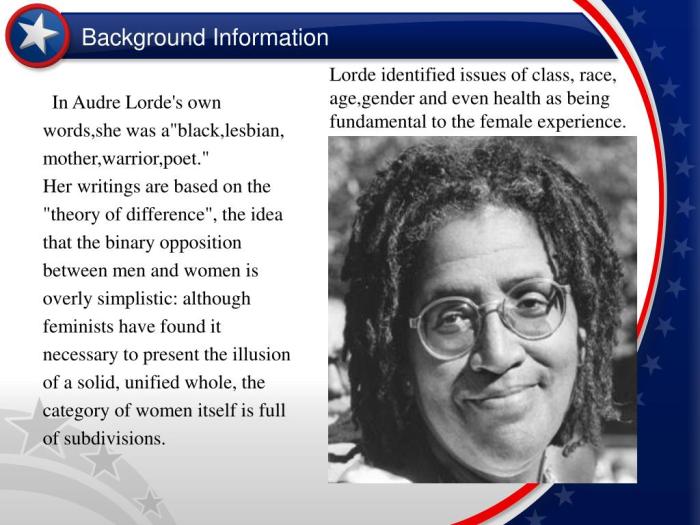
In Lorde’s work, the Fourth of July is a complex symbol that embodies both the promise of freedom and the reality of oppression. She uses the holiday to critique American society, highlighting the ways in which it has failed to live up to its ideals of liberty and equality.
However, Lorde also acknowledges the potential for liberation that the Fourth of July represents, seeing it as an opportunity to challenge the status quo and create a more just and equitable world.
The Fourth of July as a Symbol of Freedom
For Lorde, the Fourth of July is a reminder of the promise of freedom that America was founded upon. She writes in her poem “Fourth of July” that the holiday is a time to “celebrate our freedom,” a freedom that has been hard-won and must be constantly defended.
Lorde also sees the Fourth of July as an opportunity to reflect on the progress that has been made towards achieving equality for all Americans. She writes in her essay “The Master’s Tools Will Never Dismantle the Master’s House” that the holiday is a time to “remember the women who have struggled and died for our freedom,” and to “celebrate the victories that have been won.”
The Fourth of July as a Symbol of Oppression, Audre lorde fourth of july
However, Lorde also recognizes that the Fourth of July is a symbol of oppression for many Americans. She writes in her poem “For the Record” that the holiday is a time when “the voices of the oppressed are silenced,” and when “the history of violence and exploitation is whitewashed.”
Lorde also criticizes the way in which the Fourth of July is often used to celebrate American imperialism, and the way in which it has been used to justify the oppression of other peoples.
The Role of Resistance and Activism in Lorde’s Writing
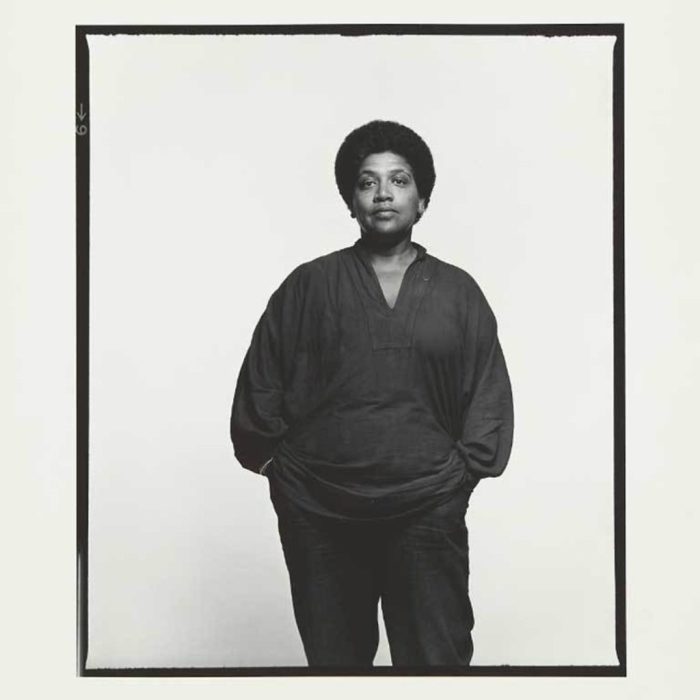
Audre Lorde’s writing on the Fourth of July serves as a powerful call to action, encouraging resistance and activism against the pervasive systems of oppression that continue to plague American society. Through her incisive prose, Lorde exposes the hypocrisy and contradictions inherent in a nation that celebrates independence while simultaneously perpetuating inequality and injustice.
Lorde’s work advocates for a multifaceted approach to resistance and activism, encompassing both individual and collective strategies. She emphasizes the importance of recognizing and challenging the interlocking systems of oppression, including racism, sexism, homophobia, and classism, that shape the experiences of marginalized communities.
Confronting the Legacy of Oppression
Lorde’s writing urges readers to confront the legacy of oppression that continues to haunt American society. She argues that true independence cannot be achieved without addressing the historical and ongoing injustices that have been inflicted upon Black, Indigenous, and other marginalized communities.
- Lorde exposes the ways in which the Fourth of July mythologizes American history, erasing the experiences of those who were enslaved, colonized, and dispossessed.
- She challenges the notion of a “post-racial” society, arguing that racism remains a pervasive force that shapes the lives of Black Americans.
- Lorde calls for a critical examination of the role of whiteness in perpetuating systems of oppression and privilege.
Building Solidarity and Coalition
Lorde recognizes the importance of building solidarity and coalition among marginalized communities in order to effectively resist oppression. She emphasizes the need for cross-racial, cross-gender, and cross-class alliances that can challenge the divide-and-conquer tactics often employed by those in power.
- Lorde advocates for the creation of safe and inclusive spaces where marginalized voices can be heard and amplified.
- She encourages the sharing of experiences and the development of shared strategies for resistance.
- Lorde believes that by uniting across differences, marginalized communities can create a powerful force for social change.
Utilizing Art and Language
Lorde’s writing demonstrates the power of art and language as tools for resistance and activism. She uses poetry, prose, and other literary forms to challenge dominant narratives and create alternative visions of liberation.
- Lorde’s work gives voice to the experiences of marginalized communities, amplifying their stories and perspectives.
- She uses language as a weapon, exposing the ways in which oppressive language perpetuates inequality.
- Lorde encourages the use of art and creativity as a means of self-expression, healing, and empowerment.
The Legacy of Audre Lorde’s Fourth of July Critique
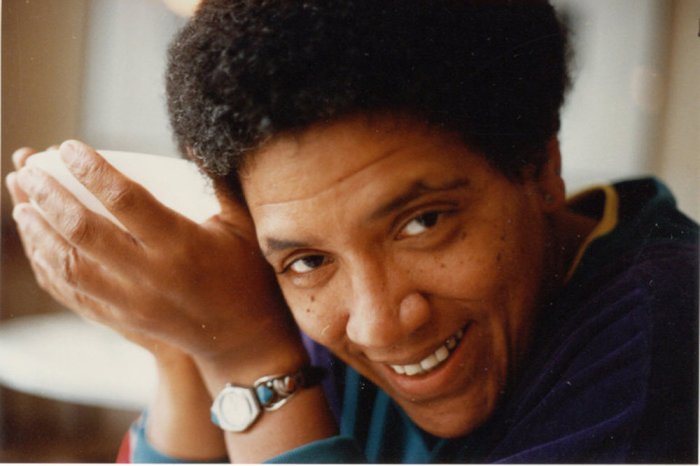
Audre Lorde’s Fourth of July critique has had a profound impact on the contemporary understanding of Independence Day. Her essay has inspired activists, artists, and scholars to challenge the traditional narrative of American freedom and to recognize the ways in which the holiday perpetuates oppression for many marginalized groups.
Influence on Activists
Lorde’s writing has motivated activists to organize protests and demonstrations on Independence Day. These events often highlight the experiences of people of color, LGBTQ+ people, and other marginalized communities who have been excluded from the promise of American freedom. By disrupting the traditional celebrations, activists draw attention to the ongoing injustices that persist in society.
Influence on Artists
Lorde’s essay has also influenced artists, who have used their work to explore the themes of freedom, oppression, and resistance. For example, the poet Claudia Rankine’s poem “The End of the Alphabet” echoes Lorde’s critique of the Fourth of July by questioning the meaning of freedom in a society that continues to grapple with racial inequality.
Influence on Scholars
Lorde’s work has also shaped the field of scholarship on Independence Day. Scholars have used her essay to analyze the ways in which the holiday reinforces systems of oppression and to explore the experiences of marginalized groups on this day.
This scholarship has helped to broaden our understanding of the complex and contested history of American freedom.
Essential Questionnaire
What is the main argument of Audre Lorde’s Fourth of July essay?
Lorde argues that the Fourth of July is a symbol of both freedom and oppression, and that it cannot be truly celebrated until all Americans are free from racism, sexism, and homophobia.
How does Lorde’s experience as an African American lesbian woman shape her perspective on the Fourth of July?
Lorde’s experiences with racism, sexism, and homophobia have given her a unique understanding of the ways in which these forms of oppression are embedded within American society. She argues that the Fourth of July cannot be truly celebrated until these systems of oppression are dismantled.
What is the legacy of Audre Lorde’s Fourth of July critique?
Lorde’s Fourth of July critique has had a profound impact on the contemporary understanding of Independence Day. Her writing has inspired activists, artists, and scholars to challenge the traditional symbolism of the holiday and to work towards a more just and equitable society.
